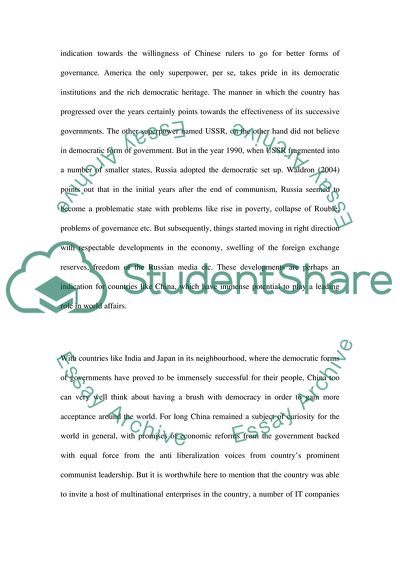Cite this document
(Will Democracy Help or Hinder China's Development Article, n.d.)
Will Democracy Help or Hinder China's Development Article. https://studentshare.org/politics/1721122-will-democracy-help-or-hinder-chinas-development
Will Democracy Help or Hinder China's Development Article. https://studentshare.org/politics/1721122-will-democracy-help-or-hinder-chinas-development
(Will Democracy Help or Hinder China'S Development Article)
Will Democracy Help or Hinder China'S Development Article. https://studentshare.org/politics/1721122-will-democracy-help-or-hinder-chinas-development.
Will Democracy Help or Hinder China'S Development Article. https://studentshare.org/politics/1721122-will-democracy-help-or-hinder-chinas-development.
“Will Democracy Help or Hinder China'S Development Article”. https://studentshare.org/politics/1721122-will-democracy-help-or-hinder-chinas-development.


